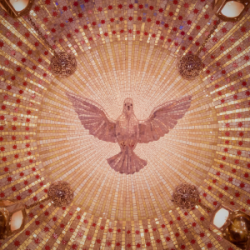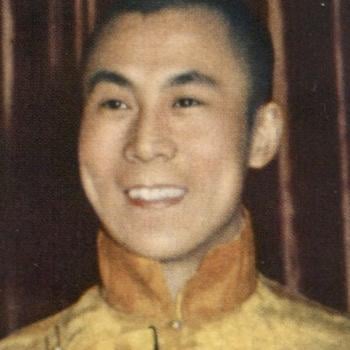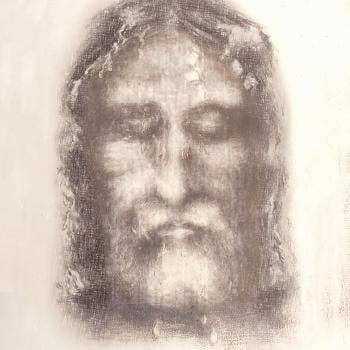The father in this case has fallen into as much error as the other Israelites. His righteous action is far from perfect. But consider that that is the point. In a fallen world, a father may do what matters even when he knows better than anyone that he is not a fairy-tale hero.
The father in question is Joash, whose son Gideon is chosen lead to Israel against the Midianites. God tells Gideon to destroy the altar his people have built to the false god Baal, and to use materials from it to build a proper altar to the Lord. The altar is actually Joash's own, and when the people, angry and fearful, investigate the destruction of the altar to Baal, they quickly discover that it is Joash's son Gideon who has destroyed it. They demand that Gideon be killed (6:30-31):
The people of the town demanded of Joash, "Bring out your son. He must die, because he has broken down Baal's altar and cut down the Asherah pole beside it."
But Joash replied to the hostile crowd around him, "Are you going to plead Baal's cause? Are you trying to save him? Whoever fights for him shall be put to death by morning! If Baal really is a god, he can defend himself when someone breaks down his altar."
Joash doesn't exactly make a ringing speech here about the greatness of the Lord God or the people's obligation to worship and obey Him. His intervention is more in the nature of a horse-trader's negotiating point, or a practical attempt to simply defuse the situation, whatever the rights and wrongs of it before the august judgment of eternity.
But in stepping up to the plate and standing for the right, Joash does more than almost any other man in the book of Judges. He does what a father should do: stand for the side of right, before his people and on behalf of his son. The people give up on killing Gideon, who goes on to command one of the Israelites' most memorable victories, and then rules over Israel during a peace that lasts forty years.
Three or four decades ago, many Western Christians, saddened by Joash's imperfections, would probably have given him and his minor role short shrift. In 2011, our hearts may be readier to understand that fathers come from many backgrounds and with all kinds of baggage. When there is a threat to their children and their people's future, they need not be paralyzed by the knowledge of what they are not, or the wrong they have done. They need not worry about their eloquence, their moral inadequacies, or their capacity for unassailable argument. If the fathers among us will only do what Joash did—stand, exactly where they are, for the right, and for their children—God will do the rest.





